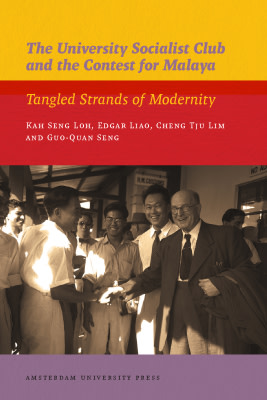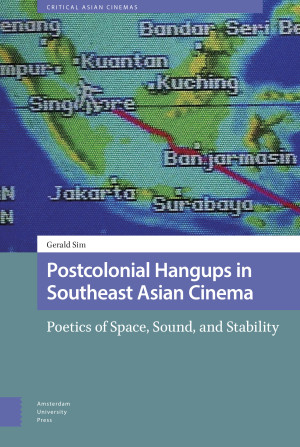"Sharing a critical interest in examining the "national" in Southeast Asian cinemas, Postcolonial Hangups and Southeast Asia on Screen [Amsterdam University Press, 2020] make use of distinctly different methodologies and focus on diverse geopolitical regions and their cinemas. The two books expand the limits of Southeast Asian, Asian, national, and postcolonial cinema as well as lend insights to film aesthetics. Both books have incorporated valuable and new perspectives with much-appreciated historical depths. Invested readers will surely benefit from the vast array of film texts examined as well as the knowledge and critical perspectives offered by these specialists of the field."
- Min Hui Yeo, Global Storytelling 1.2 (2022)
"Sim explores how the psychic, spatial, and political resonances of Singapore, Malaysia, and Indonesia's colonialization extends into the cinemas of recent decades and articulates with the emergent pressures of global capitalism. [...] The poetics of 'space', 'sound', and 'stability' are the three key ideas around which Sim structures the book—and they are indeed rich and appropriate frameworks. Each of the four chapters showcases Sim's conceptual interventions via illuminating analysis, an extensive filmography, and gripping writing."
- Nadine Chan, Journal of the Malaysian Branch of the Royal Asiatic Society, Volume 94, Part 2, No. 321, December 2021
"An absolutely fascinating and illuminating read, Postcolonial Hangups in Southeast Asian Cinema is a most welcome addition to the vital body of work on world cinemas. Written with a warm and welcoming prose, it brings alive as-yet underappreciated films from Singapore, Malaysia and Indonesia in an affective, even atmospheric, manner. What stands out most is the carefully considered and commendably self-aware engagement of these South East Asian cinemas with theory. The result of this is an enjoyable book which offers the opportunity to shake up accepted ways of thinking about what theory can tell us about postcolonial cinema. The findings of this remarkable book are of pertinence for scholars looking to decolonise thinking around the globe. As such its resonance will undoubtedly be felt for many years to come."
- David Martin-Jones, author of Cinema Against Doublethink (2018), Deleuze and World Cinemas (2011), Deleuze, Cinema and National Identity (2006).
"Wide-ranging and comprehensive, Gerald Sim's study at the intersection of postcolonial theory and politics exposes gaps and chasms with a nuanced eye. His close readings capture important cultural ironies, and he applies theories of film sound and space to enlightening effect. Anyone with an interest in Southeast Asian cinema needs to read this book."
- Tan Pin Pin, director of Singapore GaGa (2005) and In Time to Come (2017).
''[...]the book offers a significant contribution to the growing field of Southeast Asian film studies. In distinguishing the unique postcolonial poetics within the differing industries, filmmakers, and topics of these three countries, Sim has succeeded in a task that eludes many, and identified a specific angle through which to begin expanding the umbrella of postcolonial film studies. In the end, Postcolonial Hangups in Southeast Asian Cinema manages to tie its many threads together and elevate what was previously a relatively obscure district to the forefront of critical reflection in postcolonial studies.''
- Mary Jane Ainslie, Pacific Affairs September 2023, V.96, no.3

